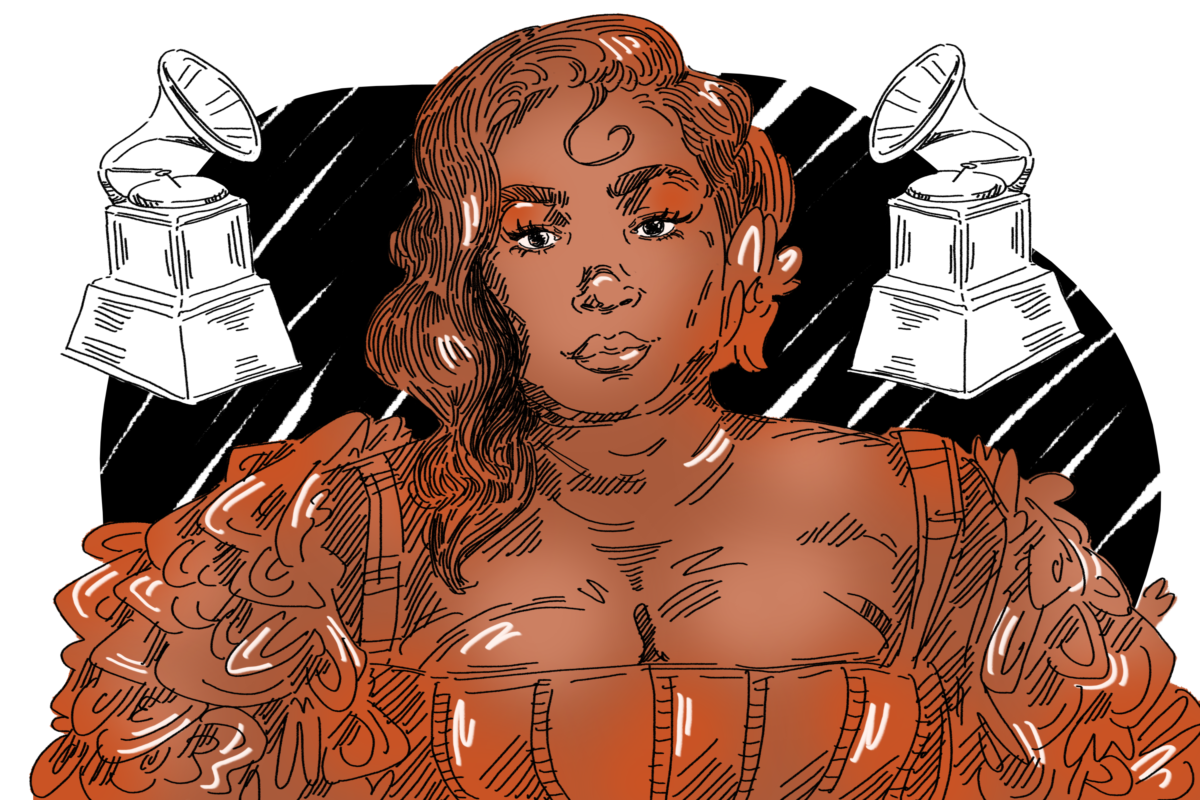The Grammys are predictable, and here’s what’s likely to happen
Love or hate them, the Grammys are the music industry’s biggest night. This ceremony rewards artists for their releases throughout the year by nominating them into separate categories where they have a chance to win a trophy for their accomplishments.
On Sept. 30, 2021, the 13-month eligibility window closed, meaning albums released after this date won’t be eligible to be nominated for the 64th annual Grammy Awards.
That being said, despite the Grammys happening in late January, here are some way-too-early nomination predictions for the Album of the Year category. As predictable as the Recording Academy can get, (I’m looking at you H.E.R. nominations in at least two of the four biggest categories), there are rarely any surprises when it comes to the nominees in this category. Before beginning, there are a couple of different groups of candidates that I’d like to classify when it comes to nominations done by the jury: The Grammy Darlings, The Newcomers, Rap Albums That Have No Chance of Winning, Even if It Was the Greatest Album Ever Made, and The Wildcards.
The Grammy Darlings
This group includes albums from artists who have won in the past or that are often nominated in this category. Whenever these artists drop a project, they are almost always guaranteed at least a nomination (unless you’re The Weeknd and you decide to perform at the Super Bowl instead).
Billie Eilish – Happier Than Ever
Despite not being as popular as her debut album WHEN WE ALL FALL ASLEEP, WHERE DO WE GO? (for which she won five Grammys, including Album of the Year), Happier Than Ever is still a solid record and could have been talked about a bit more over the summer. This album is an automatic lock in the category because of her last album winning the award.
Taylor Swift – evermore
Swift is the current holder of the Album of the Year award. She first won the award in 2009 with Fearless, then went on to rob the award from Kendrick Lamar’s To Pimp A Butterfly back in 2015. She won again in 2020 with her more folk-oriented folklore. Swift’s change of style had a little less commercial success than her more pop-oriented records, but received more critical success instead. Now she’s looking to go back-to-back in the same category.
Ariana Grande – Positions
Ariana Grande has a strong advantage over other artists in this category, by being one of the largest pop stars in the world, (pop albums have been favoured by the jury over the years). The sex-infused Positions saw the Florida singer top the charts in the tail end of 2020. Her last album, thank u, next, was nominated in the Album of the Year category two years ago.
Others in this group include: Justin Bieber’s Justice, Megan Thee Stallion’s Good News, and H.E.R.’s Back of My Mind.
The Newcomers
This group includes artists that have been bursting onto the scene with their first studio albums, gaining massive commercial success in doing so. The Recording Academy particularly likes this group of artists since they have a higher chance at becoming supernovas.
This list includes albums such as: Olivia Rodrigo – SOUR, Lil Nas X – MONTERO
Both albums had chart topping singles. Rodrigo even had two No. 1 hits with “drivers license” and “good 4 u,” while Lil Nas X only had “Montero (Call Me By Your Name).” Both records also received commercial and critical success, showcasing the massive talent and potential of both artists. Both of these entries are also guaranteed locks at being nominated.
Rap Albums That Have No Chance of Winning, Even if It Was the Greatest Album Ever Made
This group brings together some amazing rap albums that should be considered as potential winners, but are only on the list because it looks good for the jury to have multiple genres in the category. The same goes for country music, where they’ll often put an album in the mix just to look versatile. After all, artists have made it clear in the past that they’re not happy with how the Grammys categorize them.
This list includes albums such as: Tyler, The Creator – CALL ME IF YOU GET LOST, Kanye West – Donda, Drake – Certified Lover Boy
Despite how underwhelming and flavourless Certified Lover Boy was, I’ll still include it here for the sole reason that it’s Drake: he does numbers and the jurors usually like him.
As for the two others, they both deserve a nod in the category for being outstanding albums that are in the conversation for the best albums of 2021. Though they each have a good chance of winning in the rap categories, it’s just sad that the Grammys won’t acknowledge them even further because they deserve to have a real shot instead of only serving as placeholders in the category in an attempt for the awards to seem diverse.
The Wildcards
These albums could very well compete for the award but all for different reasons. Whether it’s Bad Bunny’s EL ÚLTIMO TOUR DEL MUNDO for its commercial success, while also being a nod to Spanish music, or even Kacey Musgraves’ divorce-themed star-crossed, it wouldn’t be surprising to see one of these albums being nominated.
Honorable mention : Doja Cat’s Planet Her
The Verdict
While all of these have a shot at the title, on Jan. 31, 2022, at the 64th annual Grammy Awards, the host will read, “and the winner for the Album of the Year is… SOUR by Olivia Rodrigo.” Mark my words.
Graphic by James Fay
